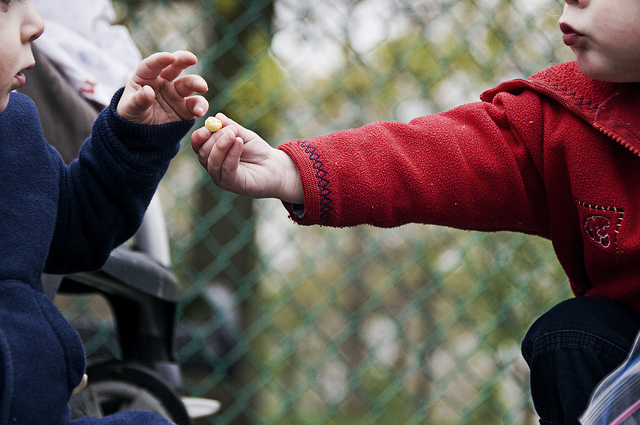The science of compassion
By NPR's Hidden Brain

The science of compassion
By NPR's Hidden Brain
Kellie Gillespie is in her early 40s. She lives in London. And until a couple of years ago, she was basically an ordinary person.
That was before she took a psychology class with Scott Plous of Wesleyan University.
“My life changed after doing Professor Plous’ course,” Kellie says. “And now I’m studying to be a psychotherapist and counselor.”
Plous’ course was offered online, hosted by the educational platform Coursera. Kellie learned several psychological concepts in the class. One is the norm of reciprocity: if you’re nice to someone, or you open up to them, they’re likely to do the same with you. She also learned about the power of empathy: when you put yourself in someone else’s shoes, it profoundly changes the relationship you have with them.
Now, lots of people learn about ideas in psychology, but Kellie Gillespie did something unusual. She took what she had learned in the class, and applied it in her own life.
Kellie was spending a lot of time at the British Library, and she often noticed the same young man on the street nearby. She could tell he was homeless, but he was “always smiling,” she said, “He was always so pleasant.” It started simply, with Kellie giving the man whatever spare change she had. But after a couple of months, she wanted to do more.
She learned his name was Simon, and invited him for a cup of coffee. To make him feel comfortable, she told him a bit about her life, and slowly, he opened up about his.
“He kept mentioning how much he missed his mum,” Kellie says. This struck a chord for her — Kellie’s own mother had passed away a decade before. Kellie helped Simon get in touch with his mother, and ultimately, put him on a bus heading home.
“Doing the course with Professor Plous most definitely opened my eyes to the reasons why people don’t do something to help,” Kellie says. “It’s easy to say ‘I can’t make a difference,’ but everyone can make a difference.”
The Challenge
What would you do if you had to spend one day beaming compassion into the world? It could be something small, like acknowledging a stranger. It could be something big: changing the direction of another person’s life.
Please try it, and tell us what you found.
We’ll share some of the stories you send us on the podcast. Find us on Facebook or send an email to hiddenbrain@npr.org.
The Hidden Brain podcast is produced by Kara McGuirk-Alison and Maggie Penman. Follow us on Twitter @hiddenbrain, @karamcguirk and @maggiepenman, and listen for Hidden Brain stories every week on your local public radio station.
— via NPR